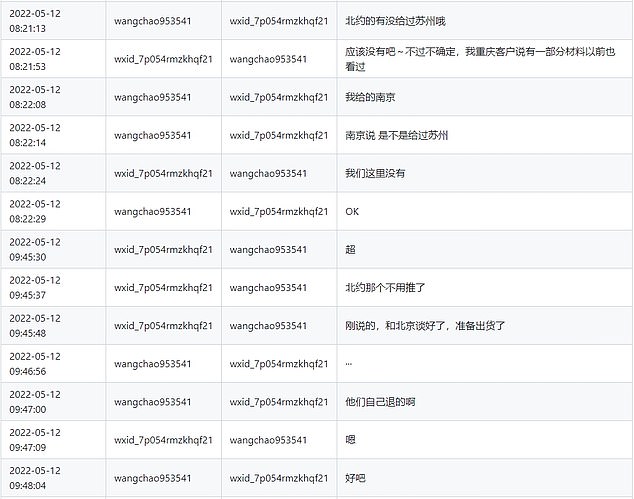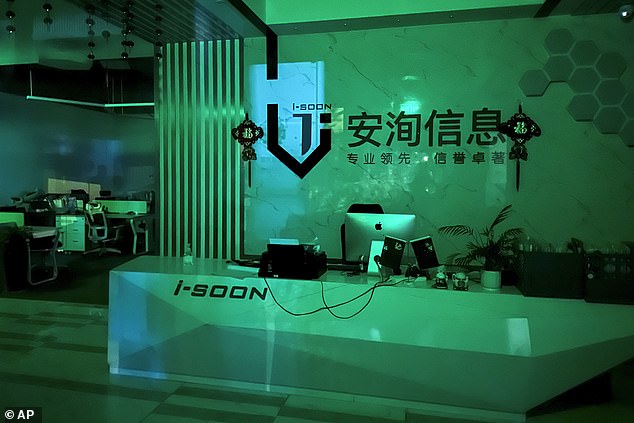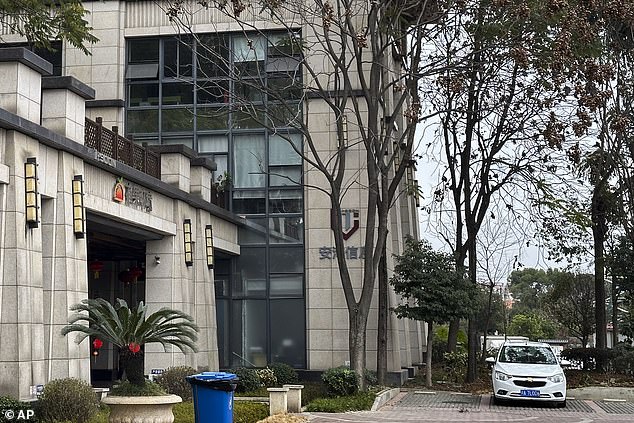A trove of newly leaked documents has revealed a sophisticated Chinese government-backed hacking operation that has targeted the UK and other Western states.
The cache of more than 570 documents, images and chat logs was leaked from i-Soon, also known as Auxun, a private technology company that claims to be able to exploit software vulnerabilities of major technology companies including Microsoft, Apple and Google, at the request of the Chinese government.
The files, posted on code-sharing platform GitHub last week, show i-Soon’s contracts with the Chinese government dating back eight years and targeting at least 20 foreign governments, including the UK.
Employees of i-Soon, which is based in Shanghai and sells third-party hacking and data collection services, were found to have discussed the UK’s Home Office and Foreign Office, as well as the Treasury.
Also on the list were renowned think tanks Chatham House and the International Institute for Strategic Studies, both based in London and with strong links to the UK government.

The files, posted on code-sharing platform GitHub last week, show i-Soon employees discussing the description of the sale of unspecified data related to the block in 2022.


i-Soon is a private technology company that claims to be able to exploit software vulnerabilities of major technology companies, including Microsoft, Apple and Google, at the behest of the Chinese government.


i-Soon targeted commercial interests around the world (File image)
Also in the crosshairs of the hacking operation was NATO, with many chat logs describing the sale of unspecified data related to the bloc in 2022.
It is not clear from the records, which have been reviewed by MailOnline, what the data relates to or how it was extracted.
The leaked documents also show that hackers also targeted business interests around the world, with one of them managing to steal a three-terabyte collection of call logs from a South Korean telecommunications company.
The group also targeted telecommunications companies in Hong Kong, Nepal, Kazakhstan, Malaysia, Mongolia and Taiwan.
All pieces of software have some level of vulnerability and there is now a complex economic ecosystem of companies and individuals who can make large amounts of money by finding them and selling software that can exploit them.
In the world of cybersecurity, actors who find vulnerabilities and sell the information to the author of the software, with the intention of allowing them to patch it, are known as “white hat hackers”, while those who sell exploits to others with the intention of facilitating a breach is known as “black hat hackers”.


The company now works for key government departments, including the Ministry of Public Security, the Ministry of State Security and the People’s Liberation Army.


The Washington Post reported that i-Soon is one of many companies that make up the ‘patriotic’ hacking ecosystem
Washington Post reported that i-Soon is one of many companies that make up the ‘patriotic’ hacking ecosystem that has been established and grown over the past two decades.
The company now works for key government departments, including the Ministry of Public Security, the Ministry of State Security and the People’s Liberation Army.
One document showed i-Soon has signed hundreds of deals with Chinese police forces ranging from just £1,100 to £634,000.
A leaked product guide boasts of the company’s ability to steal data without detection.
One document, describing a service that i-Soon says allows customers to covertly access and control Microsoft Outlook and Hotmail accounts, says: “Information has increasingly become the lifeblood of a country and one of the resources that countries are struggling to take advantage of. In information warfare, stealing information from the enemy and destroying their information systems have become the key to defeating the enemy.’
The company also announces a £20,000 service that aims to allow users to obtain information from iPhones, including “basic mobile phone information, GPS positioning, mobile phone contacts” and “environment recording” using a monitoring system. remote access”.
China’s growing confidence in its ability to carry out cyberattacks against its adversaries is well documented, with the FBI director warning that China’s cyberattacks have grown to a “larger scale than we have seen before.”
Christopher Wray said Beijing’s plan to secretly deploy technology inside critical US infrastructure has become a major threat to national security.
